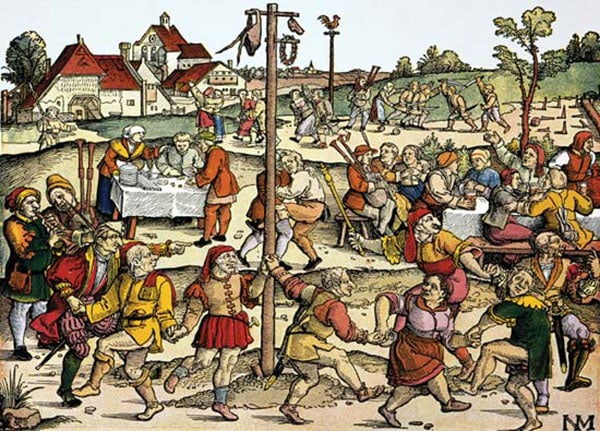
ADVERTISEMENT - CONTINUE READING BELOW
5. Middle Ages Peasants Might Work as Few as 150 Days a Year
James Pilkington, a Bishop of Durham, complained thus about all the breaks taken by peasants: “The labouring man will take his rest long in the morning; a good piece of the day is spent afore he come at his work; then he must have his breakfast, though he have not earned it at his accustomed hour, or else there is grudging and murmuring; when the clock smiteth, he will cast down his burden in the midway, and whatsoever he is in hand with, he will leave it as it is, though many times it is marred afore he come again; he may not lose his meat, what danger soever the work is in. At noon he must have his sleeping time, then his bever in the afternoon, which spendeth a great part of the day;
and when his hour cometh at night, at the first stroke of the clock he casteth down his tools, leaveth his work, in what need or case soever the work standeth.” Between slack time and holidays, a Middle Ages peasant might get away with only 150 workdays in a good harvest year. By contrast, an American worker would be lucky to get 8 vacation days in a year, as the US “continues to be the only advanced economy that does not guarantee its workers paid vacations“. Although we work more hours than medieval peasants, at least we don’t have it as bad as nineteenth century American workers, who put in around 3,650 hours annually. That is more than double the 2021 American worker’s average of 1,757 hours a year.

